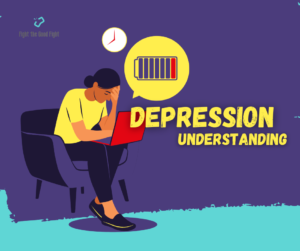The impact of pornography on the human brain is a topic of much debate, with opinions varying widely. However, recent studies suggest that excessive consumption of pornography can have damaging effects on the brain’s neural pathways, leading to negative consequences on mental and emotional health.
Pornography addiction, also known as compulsive sexual behavior disorder, has been classified as a mental health disorder by the World Health Organization. The condition is characterized by a persistent pattern of behaviors that involve the use of pornography, leading to significant distress or impairment in social, occupational, or other areas of functioning.
One of the most significant ways that pornography can damage the brain is by triggering the reward center, releasing dopamine, a chemical that provides a sense of pleasure and reward. However, excessive pornography consumption can lead to desensitization to dopamine, requiring more significant stimuli to achieve the same level of pleasure. This process, known as tolerance, can lead to addiction and result in physical changes in the brain’s reward center, leading to a vicious cycle of addiction.
Research shows that individuals who watch pornography frequently have lower gray matter volume in areas of the brain responsible for decision-making, impulse control, and reward processing. The changes in the brain’s structure are similar to those seen in individuals with drug and gambling addiction, suggesting that pornography can have the same impact on the brain.
Moreover, research also suggests that excessive pornography consumption can lead to a decrease in functional connectivity between the amygdala, the brain’s emotional processing center, and the prefrontal cortex, responsible for cognitive control and decision-making. This decrease in connectivity can lead to an increased risk of impulsive behavior, decreased self-control, and difficulty regulating emotions.
Another way that pornography can damage the brain is by creating unrealistic expectations and perceptions of sexual behavior, leading to anxiety, depression, and relationship problems. Studies have shown that individuals who frequently consume pornography have a more negative perception of their bodies and sexuality, leading to dissatisfaction with their sex lives and an increased risk of sexual dysfunction.
The objectification of individuals in pornography can also lead to a distorted view of sexual relationships, where the focus is on sexual gratification rather than emotional connection and intimacy. This can lead to difficulties in forming and maintaining healthy relationships and increased risk of addiction to pornography.
Furthermore, pornography can have a significant impact on the brain’s reward circuit, leading to an increased risk of addiction and withdrawal symptoms. Individuals who consume pornography excessively can experience cravings and urges to watch more, leading to a loss of control and increased distress.
In conclusion, excessive consumption of pornography can have significant negative effects on the brain, leading to changes in neural pathways and an increased risk of addiction and mental health problems. While some argue that pornography consumption is harmless, the evidence suggests that it can have significant consequences on an individual’s mental and emotional health. It is crucial to understand the risks associated with excessive consumption of pornography and seek help if necessary to prevent long-term damage to the brain and overall well-being.



